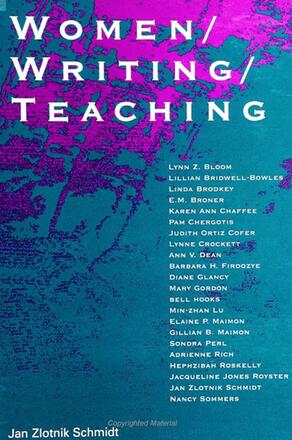
Women/Writing/Teaching
Alternative formats available from:
Presents autobiographical visions of women writing teachers--their intertwined lives as professionals, feminists, writers, instructors, and colleagues.
Description
This book presents autobiographical visions of women writing teachers--their complex lives as writers, as instructors, as feminists, as professionals in the academy. The authors explore their complex identities as teachers: the particular configurations of their pasts, gender, class, ethnic backgrounds, personalities, and cultures that have shaped their personae as instructors of writing.
The contributors explore the intersections of their past and present experiences that influence and guide their development as writers and as instructors of writing. The book discusses how women can emerge from silence, gain authority and power as professionals, and balance the private and public aspects of their lives. In addition, it addresses how women constitute themselves as literacy teachers and what models of feminist pedagogy emerge.
Women/Writing/Teaching is notable for the range, depth, and richness of the chapters; the dynamic interplay of voices, approaches, issues, and concerns; the multiethnic focus; and the high quality of the writings. It will prompt readers to explore their own life stories and to comprehend more fully women's complex lives as teaching professionals.
Jan Zlotnik Schmidt is Professor of English and Coordinator of the Composition Program, State University of New York, New Paltz. Her previously published work includes Legacies: Fiction, Poetry, Drama, Nonfiction (with Carley Bogarad) and We Speak in Tongues (a volume of poetry).
Reviews
"I found the use of the personal 'I' narrative illuminating. There is such a vast range of approaches--some of these women reveal a great deal of personal history, some limit themselves to general events rather than detailed memories, but all seem to struggle toward more than a private understanding of what their stories mean, and to greater or lesser degrees, interpret and analyze their story in the telling. This self-scrutiny adds great dimension and accessibility to stories that might otherwise not have any obvious connection to readers. " -- Mary Ann Cain, author of Revisioning Writers' Talk: Gender and Culture in Acts of Composing